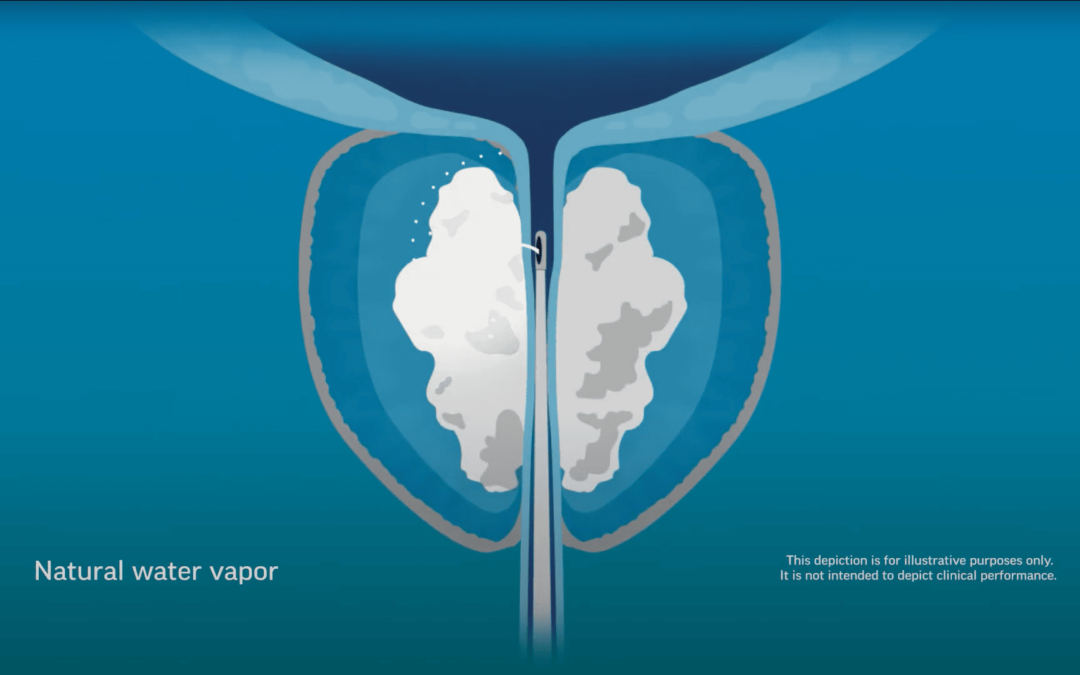
Rezum : The Newest Treatment For BPH !
Rezum For BPH
In the video on MTV featuring urologist Dr. Fouad Khoury, he discusses the topic of BPH (benign prostatic hyperplasia) and highlights Rezūm as the recommended treatment for this condition.
What is the difference between BPH & prostate cancer?
Benign Prostatic Hyperplasia (BPH) and prostate cancer are two distinct conditions that affect the prostate gland, but they differ in their nature, causes, symptoms, and treatment approaches. Here’s an overview of the key differences:
1. Nature:
• BPH: Benign Prostatic Hyperplasia refers to the non-cancerous enlargement of the prostate gland. The growth of prostate tissue in BPH is considered benign, meaning it is not cancerous.
• Prostate Cancer: Prostate cancer, on the other hand, is the abnormal and uncontrolled growth of malignant cells in the prostate gland. It is a cancerous condition that can spread to other parts of the body if not treated.
2. Causes:
• BPH: The exact cause of BPH is not fully understood, but age and hormonal imbalances, particularly involving the male hormone dihydrotestosterone (DHT), are believed to play a role.
• Prostate Cancer: The exact cause of prostate cancer is also unknown, but factors such as age, family history, genetic mutations, and hormonal imbalances may contribute to its development.
3. Symptoms:
• BPH: Symptoms of BPH primarily relate to urinary problems, including frequent urination, weak urine flow, difficulty starting and stopping urination, incomplete emptying of the bladder, and nocturia (frequent nighttime urination). BPH symptoms are generally bothersome but not life-threatening.
• Prostate Cancer: In its early stages, prostate cancer may not cause noticeable symptoms. As the disease progresses, symptoms can include urinary difficulties similar to BPH, as well as blood in the urine or semen, erectile dysfunction, pain in the lower back, hips, or pelvis, and bone pain if the cancer has spread to the bones.
4. Diagnosis:
• BPH: BPH is typically diagnosed through a combination of medical history assessment, physical examination, including a digital rectal examination (DRE), and additional tests such as urine flow studies, ultrasound, and prostate-specific antigen (PSA) blood test.
• Prostate Cancer: Prostate cancer diagnosis often involves similar initial steps as BPH, including a medical history review, physical examination (including DRE), and PSA blood test. However, a definitive diagnosis of prostate cancer usually requires a prostate biopsy, in which small tissue samples are taken from the prostate gland and examined under a microscope.
How to treat BPH?
Medication:
The first step and decision are to take a drug.
The options include:
-Alpha-blockers: These medications relax bladder neck muscles and muscle fibers in the prostate, so the patient can urinate without any problem. But the alpha-blockers can cause a delayed ejaculation (the seminal fluid goes back into the bladder).
-Medications that reduce the volume of the prostate but cause erectile dysfunction.
-Medications for erectile dysfunction (Cialis): these drugs given every day can also cause relaxation of the muscles of the bladder.
Medication may not have a good prognosis for life, sometimes it may last for 6 months.
Surgical treatment:
-Transurethral resection of the prostate (TURP): This operation is usually performed under general anesthesia, a surgeon passes an instrument called a resectoscope through the opening of the penis and into the urethra and rises towards the prostate to remove the excess prostate tissue. But the disadvantage is that the patient who takes anticoagulants must stop them before the operation, and this surgery causes a problem in ejaculation.
– Rezum water vapor: recently approved by the FDA in 2015, makes it possible to perform a prostate surgery in 5 minutes while preserving ejaculation and sexual function.
This operation consists of throwing steam through an instrument into the enlarged area of the prostate; the vapor carries energy that will be diffused into the molecules which will be killed and discarded by the immune system.
It lasts 5 to 10 minutes under local anesthesia and the number of vapor ejections depends on the volume of the prostate.
What are the benefits of Rezum water vapor therapy?
– The procedure doesn’t cause complications, you do not have to stay in the hospital.
– Return to daily activities in a few days.
– Relatively painless.
– Improvement of symptoms after 2 weeks.
– Symptoms continue to improve for up to 3 months.
– A good prognosis of up to 15 years.
-this procedure doesn’t cause sexual dysfunctions.
After this operation, the doctor can give an antibiotic for a few days to prevent infection.


Recent Comments